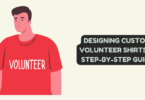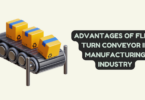
Technology
Every inventor and other entrepreneur starts with the same big question: “How do I know if my product idea is good enough?”
We all know there are tons of tools we could use, ranging from focus groups to standardized survey assessments, and even mystic product gurus. But the answer is always expensive, especially for early-stage startups.
The Nikola Institute is tackling this problem by offering pro bono (free) expert advice and product analysis. The announcement was made Tuesday on Twitter.
While this may sound great, check the details: they are only planning to start this in October, and it does not apply to larger companies, who still have to pay the full rates for product analysis. It might also only apply to tech inventions and mobile apps, so check the inventor requirements for yourself in October.
Like many law firms, Nikola Institute already offered pro bono work for individuals and non-profits, so this is more of an expansion of their program than something entirely new. As they pointed out, the USPTO (US Patent and Trademark Office) has offered a pro bono patent program for years, and also discounts their fees based on applicant size.
We can only hope this continues or better yet, expands to other service providers in the “inventosphere”, since if there’s any group that needs to save money, it’s new entrepreneurs.
Here’s a summary of the discounts:
Small Entity: 50% reduction on hourly rate and most service fees
Micro-Entity: 75% reduction on hourly rate and most service fees.
Regular Status: Any entity which does not qualify for “Small” or “Micro” status does not qualify for pro bono fee reduction.
If you don’t feel like using their pro bono service, here are some ways you can test and launch your product idea yourself:
Make your own focus group: gather your friends, friends-of-friends, and frenemies. Promise them free pizza and drinks. Pass around your product idea and spark a lively debate about it’s marketability. It sounds goofy but any time you get feedback you are on the right path. Some of your guests may even become early customers, advisors, advocates, investors, or partners.
Research similar products. Yes you can do this yourself using just Google and a few pots of coffee… just find as many similar products to your idea as you can, and learn from them. Who is their customer? What is their pricing? How are they selling? Write it all down and contemplate. Can you improve your invention idea? Is the market saturated? How can you beat the competition?
Any path you take, it’s wise to listen to any advice you can get from others who have been there. Check your personal network and think about who might be a good mentor.







You must be logged in to post a comment.